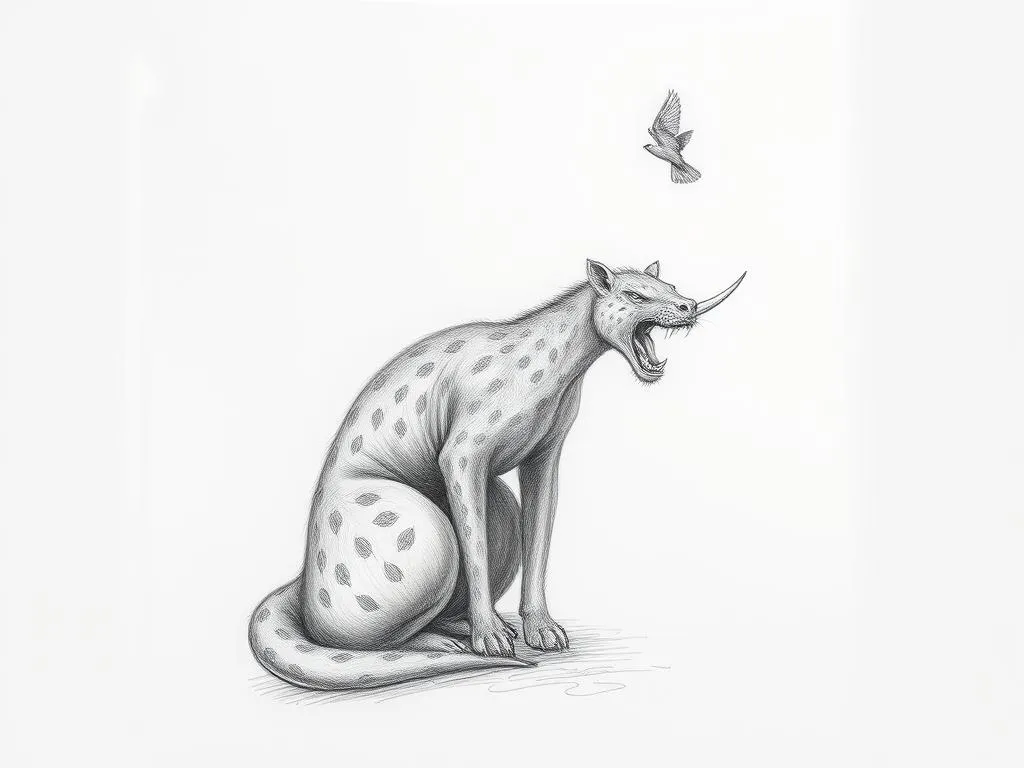Taipan: The Serpent of Power and Transformation

Disclaimer: Some images on this website are AI-generated artworks and may not accurately represent real animals.
The taipan is not just a snake; it is a powerful symbol steeped in cultural significance and rich in symbolism and meaning. These serpents inspire awe and respect, embodying the duality of danger and wisdom. In this comprehensive exploration, we will delve into the various dimensions of the taipan, examining its characteristics, cultural roles, and its profound symbolism.
Understanding the Taipan
Overview of the Taipan
The taipan is a venomous snake native to Australia and New Guinea. Known for its potent neurotoxic venom, it is considered one of the most dangerous snakes in the world.
| Physical Characteristics | Description |
|---|---|
| Length | Up to 3 meters (10 feet) |
| Color | Typically brown or olive green |
| Habitat | Forests, grasslands, and coastal areas |
| Diet | Primarily feeds on small mammals and birds |
This remarkable serpent is characterized by its slender body, elongated head, and large eyes. The taipan is known for its elusive nature, often residing in remote regions, which adds to its mysterious aura.
Cultural Significance
In various indigenous cultures, the taipan has been revered and feared. Its presence often signifies a deep connection to the land and its spirits.
Indigenous Australians view the taipan as a powerful entity, often associated with creation myths and ancestral spirits. Historically, the snake has symbolized both danger and protection, embodying the delicate balance of nature.

Symbolism & Spiritual Meaning
Power and Strength
The taipan is a representation of raw power in nature. Its venomous bite and swift movements embody strength and dominance. In many cultures, this snake symbolizes leadership and authority, reflecting the fierce aspects of life.
The taipan teaches us about the importance of harnessing our inner strength. Just as the snake asserts its place in the ecosystem, individuals are encouraged to embrace their power, leading with confidence and conviction.
Transformation and Change
Beyond its physical prowess, the taipan embodies themes of transformation and change. Snakes are often associated with shedding their skin, mirroring the process of personal growth and metamorphosis.
This symbolism resonates deeply with those on a journey of self-discovery. As individuals navigate life, the taipan serves as a reminder of the cyclical nature of existence—life, death, and rebirth.
Intuition and Wisdom
The taipan is also linked to intuition and wisdom. In many spiritual traditions, snakes are seen as guides, offering insights into the unseen realms. The taipan invites individuals to trust their instincts and tap into their inner wisdom.
As a symbol of enlightenment, the taipan encourages exploration of the depths of consciousness. It serves as a powerful ally for those seeking guidance in their spiritual journeys.
Taipan in Dreams
Common Dream Themes
Dream encounters with the taipan often evoke complex emotions. These dreams can range from fear to empowerment, reflecting the multifaceted nature of the snake.
| Dream Theme | Interpretation |
|---|---|
| Encountering the Taipan | Facing fears or challenges |
| Being bitten | Transformation through pain |
| Observing without fear | Embracing personal power |
In dreams, the taipan may symbolize the hidden aspects of the self. It challenges individuals to confront their fears and insecurities, urging them to emerge stronger.
Messages and Guidance
Analyzing dreams featuring the taipan can provide valuable insights. The snake often acts as a messenger, delivering important lessons or warnings.
When a taipan appears in a dream, it may signify a call to action. The symbolism of snakes as messengers emphasizes the need to pay attention to one’s instincts and intuition.
Modern Interpretations
Taipan in Pop Culture
In contemporary culture, the taipan has been depicted in various forms of media, often representing danger and allure. Literature and films frequently use the taipan as a metaphor for the unknown, symbolizing both fear and fascination.
This duality adds layers to the taipan’s symbolism, making it a compelling figure in storytelling. Its dangerous reputation contrasts sharply with its potential for transformation, reflecting the complexities of human experience.
Environmental Perspectives
From an ecological standpoint, the taipan plays a crucial role in maintaining balance within its habitat. As a predator, it regulates populations of smaller mammals and contributes to the overall health of its ecosystem.
However, modern myths and misconceptions about the taipan have led to unwarranted fear. Misunderstandings can result in the unnecessary killing of these snakes, disrupting the delicate balance of nature. Education and awareness are essential in fostering a greater appreciation for the taipan and its role in the environment.
Key Takeaways
- The taipan symbolizes power and strength, encouraging individuals to embrace their inner authority.
- It represents transformation and change, reflecting the cycle of life and personal growth.
- As a symbol of intuition and wisdom, the taipan invites exploration of deeper consciousness.
- Encounters with the taipan in dreams can reveal insights into personal fears and empowerment.
- The taipan’s presence in pop culture signifies a complex relationship with danger and allure.
Conclusion
The taipan stands as a powerful symbol of transformation, power, and wisdom. Its multifaceted nature invites individuals to explore their connections to this remarkable serpent.
As we reflect on the taipan’s symbolism, we are reminded of nature’s lessons—of strength, change, and growth. Embracing the taipan within ourselves can lead to profound insights and personal transformation. Ultimately, the taipan serves as a guide, illuminating the path toward understanding the intricate dance of life.






